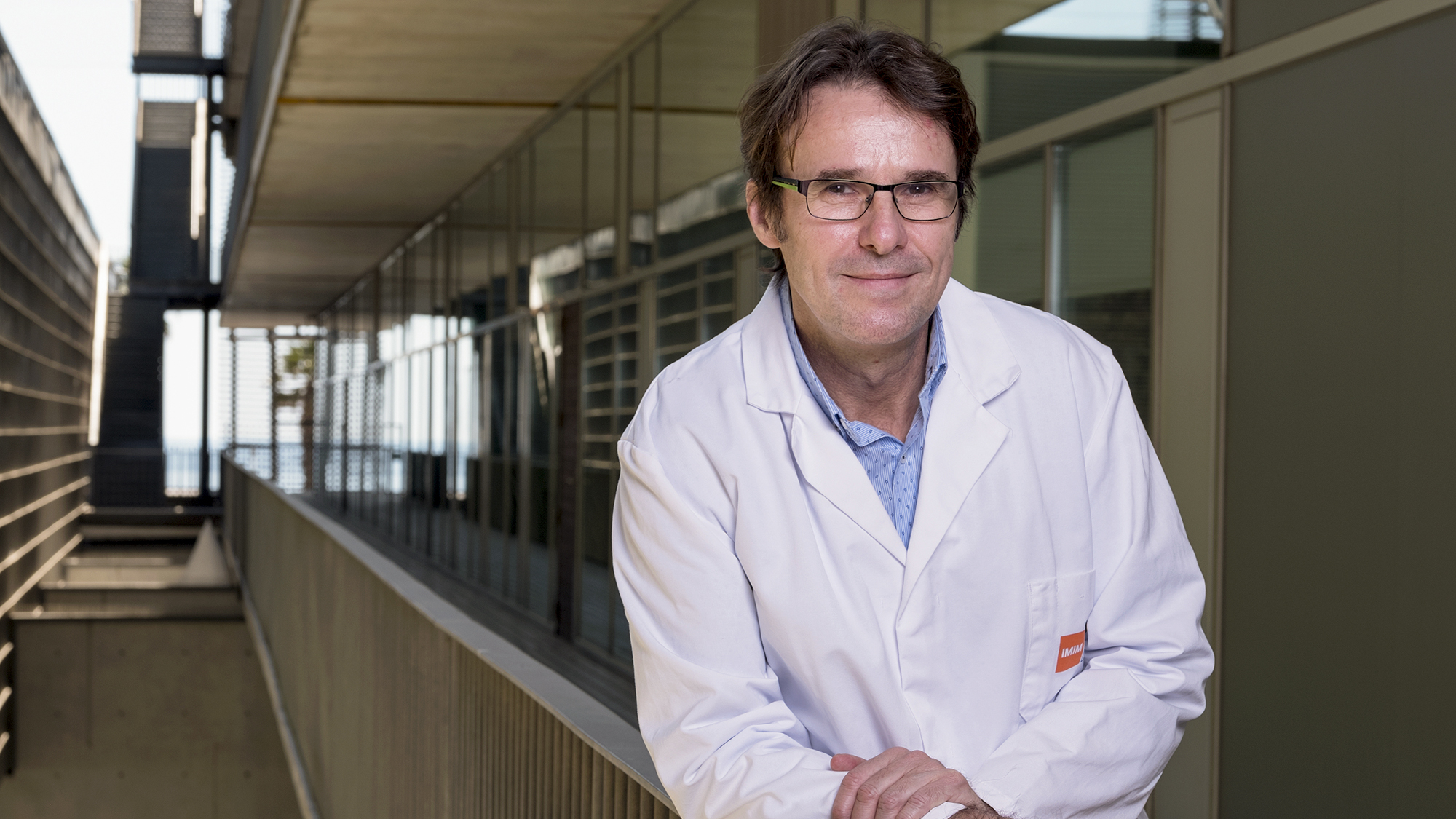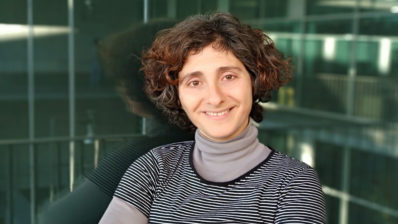Joaquín Arribas is the new director of the Hospital del Mar Medical Research Institute (IMIM) since May 2020 — although he already knew the institute well, being chairman of its Scientific Advisory Board since 2018. With a degree in Biochemistry, after doing his postdoc at the Memorial Sloan Kettering Cancer Center in New York, he came back to his native country to work at the Vall d’Hebrón Institute of Oncology (VHIO), where he has led the oncology department for 20 years
We talk to him about the first months in his new role at the IMIM, and how he sees the future of the institution.
Unofficially since January, and officially since March, you are the new IMIM’s director but you still lead your research group at the VHIO, is that right?
Yes, at the moment all my team is at the VHIO, where I have left all my institutional positions and I only work as a researcher. At the IMIM I am just the director, helped by an assistant director, Vanesa Nogales, which is really helpful since it allows me to continue doing some research.
I decided to keep my laboratory at VHIO for the time being. In that way, I can focus on the management part and since we want to do some remodeling of the research structures at IMIM, I think it is better if I am not a researcher here. However, I will gradually open a laboratory at the IMIM.
Do you see possible synergies between both centres, VHIO and IMIM?
There are similarities and differences between both institutes. VHIO is focused on cancer research, while IMIM, in addition to a very powerful cancer program, has other lines of research: bioinformatics, epidemiology, neuroscience and inflammatory diseases. In fact, regarding clinical research in oncology, there are already very positive collaborations between VHIO and IMIM and there will surely be more synergies in this field.
How has the coronavirus pandemic affected your beginnings as director?
Well, of course it was not the way I intended to start, but I think we have quickly adapted to the situation!
One of the first initiatives that we organized, to try to alleviate the negative repercussions of confinement, was to create the #IMIMSeminarsAtHome, which have been quite successful and have allowed us to maintain fluid communication among researchers.
Another thing both the assistant director and I wanted to do was to personally meet each of the centre’s principal investigators to get to know them better. We finally did it — a total of 60 interviews! — but it had to be via videoconference.
What is your vision for IMIM?
The IMIM’s great long-term goal is to consolidate itself in the Barcelona Biomedical Research Park (PRBB) as the main focus of translational biomedical research. We are the centre that manages the research that takes place at the Hospital del Mar and the Parc Salut Mar. We want to be a bridge between all the biomedical research that requires samples and information from patients and the technological possibilities of the PRBB, which is one of the main hubs of life sciences research in Europe.
“We want to be a bridge between the technological possibilities of the PRBB and the research that is very close to patients, which is our main competitive force”
In fact, as a researcher, one of the incentives to come to the PRBB was the technological platforms it offers — microscopy, proteomics, flow cytometry, the animal facility… For this reason, within the IMIM we would like to promote, in all our programs, this biomedical research very close to the patient, using the fantastic infrastructures and technological services offered by the PRBB.
We also plan a remodeling of how we use space to specifically enhance this research that requires close contact with the patient. Among other things, we want to attract talent that is a referent in this type of research. Our goal is to attract a new highly competitive group ideally each year, whose research should be focused on biomedical problems using advanced technologies.
Are there any other advantages, apart from the infrastructures, of being part of the PRBB community?
In addition to access to these infrastructures, there are great possibilities for collaborations that we want to enhance more. Just before the confinement began, we started to speak with the direction team of the Centre for Genomic Regulation (CRG) to launch a call for common projects between the two centres that would allow them to propose more translational biomedical projects and give us access to technological possibilities. And the same with the Barcelona Institute for Global Health (ISGlobal), we propose common collaboration projects. The idea is to finance projects that allow the generation of preliminary results that we can present to much larger funding calls. And we will try to do the same with the rest of the institutions in the coming months.
“Nobody knows how long the coronavirus situation will last, but I would be very surprised if we return to the previous situation within a year, at best”
Regarding the coronavirus pandemic you have had to manage, what is the IMIM’s role in this fight against COVID-19?
The infectious area of the Hospital del Mar is the one that has carried out the treatment of the patients. From IMIM we have tried to strengthen that area, as well as facilitate the management and administration of the research part of all those researchers who have been 100% dedicated to assistance.
At the same time, several projects on COVID-19 have been started, and we have adapted IMIM to be able to do research with samples of COVID-19. Although we cannot cultivate the virus; we would need a level 3 laboratory for this, which currently does not exist in the PRBB (there is a level 2 laboratory, though).
And looking to the future, what do you think the IMIM’s “new normality” will look like?
Clearly there has been a before and an after, and this situation is here to stay, for months if not years. So we are, like everyone else, looking into how to adapt to the new reality. I think we won’t travel that much, we will have to take turns in the laboratories, the seminars will continue to be online, telematic meetings, and telework will persist for all those who can… And if the new school year, as they say, has less face-to-face time, many people with small children will have to reorganize their working hours.
You can watch the interview here (in Spanish).







